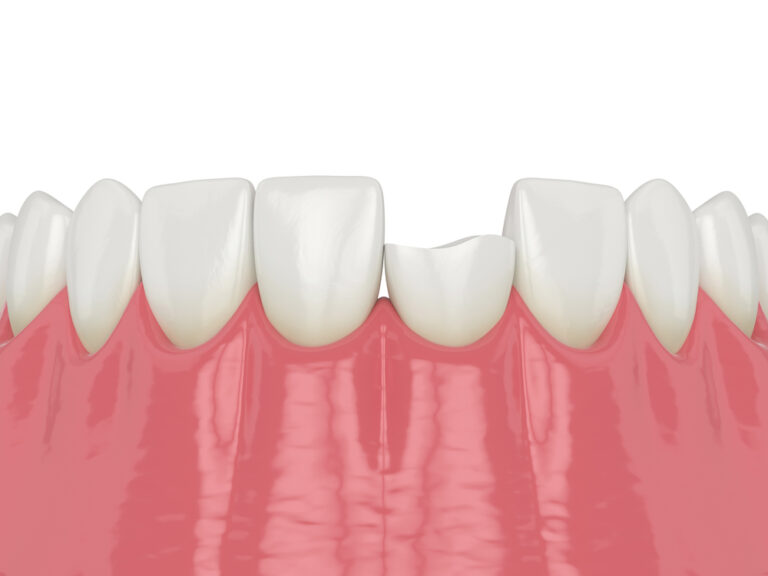Do you have wisdom teeth? If so, you may be wondering if they can make you sick. Wisdom teeth are the last teeth to emerge, usually between the ages of 17 and 25. While some people have no issues with their wisdom teeth, others experience pain, swelling, and infection. In this article, we will explore whether or not wisdom teeth can make you sick and what you can do about it.
If your wisdom teeth are causing you discomfort, you may be wondering if they are making you sick. The answer is yes, wisdom teeth can cause infections that make you feel unwell. When wisdom teeth emerge, they can create pockets in your gums that are difficult to clean. Bacteria can collect in these pockets, leading to infection. Symptoms of a wisdom tooth infection include pain, swelling, redness, and fever. If you are experiencing any of these symptoms, it is important to see a dentist or oral surgeon as soon as possible.
Understanding Wisdom Teeth

Wisdom teeth are the last set of molars that grow in the back of your mouth. They usually emerge between the ages of 17 and 25, although some people may not develop them at all.
These teeth are called “wisdom teeth” because they emerge at a time in your life when you are supposedly wiser. However, they can cause a lot of problems if they don’t grow in properly or if there isn’t enough room for them in your mouth.
Wisdom teeth can become impacted, which means they are unable to emerge fully from the gums. This can cause pain, swelling, and infection. In some cases, the impacted tooth can push against the adjacent teeth and cause them to shift or become misaligned.
If you have wisdom teeth, it’s important to keep them clean by brushing and flossing regularly. You should also visit your dentist regularly to check for any signs of problems. If your dentist recommends that you have your wisdom teeth removed, it’s important to follow their advice to prevent any potential complications.
Can Wisdom Teeth Make You Sick?
If you have been experiencing headaches, nausea, dizziness, or other symptoms at the same time as your wisdom teeth are beginning to erupt, you may be wondering if your wisdom teeth are making you sick. The answer is yes, impacted wisdom teeth can cause a range of symptoms that can make you feel unwell.
One of the most common ways wisdom teeth can make you sick is through infection. When wisdom teeth are impacted, they can become a breeding ground for bacteria. This can lead to an infection that can cause pain, swelling, and other symptoms. In some cases, the infection can even spread to other parts of your body.
Another way wisdom teeth can make you sick is by causing inflammation. When your wisdom teeth are trying to erupt, they can put pressure on the surrounding teeth and tissues. This can cause inflammation, which can lead to pain, swelling, and other symptoms.
In rare cases, impacted wisdom teeth can even cause more serious health problems. For example, if a wisdom tooth is pressing on a nerve, it can cause numbness or tingling in your face or neck. In some cases, impacted wisdom teeth can also lead to cysts or tumors.
If you are experiencing symptoms that you think may be related to your wisdom teeth, it is important to see a dentist as soon as possible. Your dentist can examine your teeth and recommend the best course of treatment. In some cases, this may involve removing your wisdom teeth.
Overall, while not everyone will experience symptoms from their wisdom teeth, it is possible for impacted wisdom teeth to make you feel sick. If you are experiencing symptoms, don’t hesitate to seek treatment.
Symptoms of Illness From Wisdom Teeth

If you have wisdom teeth, you may experience symptoms of illness from them. Here are a few symptoms to look out for:
Pain and Discomfort
One of the most common symptoms of illness from wisdom teeth is pain and discomfort. You may experience pain in the back of your mouth where your wisdom teeth are located. The pain can be dull or sharp and may come and go. You may also experience discomfort when chewing or opening your mouth.
Swelling
Another symptom of illness from wisdom teeth is swelling. You may notice swelling in your gums or in the jaw area. The swelling may be accompanied by redness and tenderness.
Fever
If you have an infection from your wisdom teeth, you may experience a fever. A fever is your body’s natural response to infection and can be a sign that your body is trying to fight off the infection.
If you experience any of these symptoms, it’s important to see your dentist or oral surgeon. They can evaluate your wisdom teeth and determine if they need to be removed. Removing your wisdom teeth can help alleviate the symptoms and prevent further infection.
Causes of Sickness from Wisdom Teeth
If you have wisdom teeth, you may experience sickness from them. Here are some common causes of sickness from wisdom teeth:
Infection
One of the most common causes of sickness from wisdom teeth is infection. An infection can occur when bacteria enter the gums around a wisdom tooth. Symptoms of an infection can include:
- Red or swollen gums
- Tender or bleeding gums
- Jaw pain
- Swelling around the jaw
- Bad breath
- An unpleasant taste in your mouth
- Difficulty opening your mouth
If you experience any of these symptoms, see your dentist right away. They can prescribe antibiotics to treat the infection and prevent it from spreading.
Impaction
Another cause of sickness from wisdom teeth is impaction. Impaction occurs when a wisdom tooth doesn’t have enough room to emerge from the gums. This can cause pain, swelling, and infection. Symptoms of impaction can include:
- Jaw pain
- Swelling around the jaw
- Difficulty opening your mouth
- Pain when chewing
- Bad breath
- An unpleasant taste in your mouth
If you experience any of these symptoms, see your dentist. They may recommend removing the impacted tooth.
Cysts
A cyst is a fluid-filled sac that can form around a wisdom tooth. Cysts can cause pain, swelling, and infection. Symptoms of a cyst can include:
- Jaw pain
- Swelling around the jaw
- Difficulty opening your mouth
- Pain when chewing
- Bad breath
- An unpleasant taste in your mouth
If you experience any of these symptoms, see your dentist. They may recommend removing the cyst and the impacted tooth.
Treatment Options

If you have an infection or other issues related to your wisdom teeth, your dentist or oral surgeon may recommend one or more treatment options. Here are some common treatment options for wisdom teeth:
Antibiotics
If you have an infection related to your wisdom teeth, your dentist or oral surgeon may prescribe antibiotics to help treat the infection. Antibiotics work by killing the bacteria causing the infection. It’s important to take the full course of antibiotics as prescribed by your dentist or oral surgeon, even if you start to feel better before you’ve finished taking the medication.
Pain Management
If you’re experiencing pain related to your wisdom teeth, your dentist or oral surgeon may recommend pain management options. Over-the-counter pain relievers, such as ibuprofen or acetaminophen, can help relieve pain. Your dentist or oral surgeon may also prescribe stronger pain medications if over-the-counter options aren’t effective.
Surgical Removal
If your wisdom teeth are causing significant issues, such as infections or damage to other teeth, your dentist or oral surgeon may recommend surgical removal of the teeth. The procedure is typically done under local anesthesia, and you’ll be given instructions on how to care for the extraction site after the procedure.
It’s important to follow all of your dentist or oral surgeon’s instructions for post-operative care to ensure proper healing and to minimize the risk of complications. Your dentist or oral surgeon may also prescribe pain medications or antibiotics to help manage pain and prevent infection after the procedure.
Prevention Strategies
To prevent getting sick from wisdom teeth, there are a few strategies you can follow. These include regular dental check-ups and good oral hygiene.
Regular Dental Check-Ups
It is important to visit your dentist regularly, ideally every six months. During these check-ups, your dentist can monitor the health of your teeth and gums, including your wisdom teeth. They can identify any potential problems early on and recommend appropriate treatment.
If you are experiencing symptoms such as pain or swelling around your wisdom teeth, it is important to see your dentist as soon as possible. Ignoring these symptoms can lead to more serious problems down the line.
Good Oral Hygiene
Maintaining good oral hygiene is key to preventing infections and other complications related to wisdom teeth. Here are some tips for keeping your mouth healthy:
- Brush your teeth twice a day with fluoride toothpaste.
- Floss daily to remove food particles and plaque from between your teeth.
- Use an antiseptic mouthwash to kill bacteria and freshen your breath.
- Avoid sugary and acidic foods and drinks, which can erode your tooth enamel and lead to cavities.
In addition to these tips, it is important to avoid smoking and using other tobacco products. Smoking can increase your risk of infections and delay the healing process after wisdom tooth extraction.
By following these prevention strategies, you can help keep your wisdom teeth healthy and avoid getting sick from them.
Frequently Asked Questions
What are the symptoms of an infected wisdom tooth?
An infected wisdom tooth can cause pain, swelling, and difficulty opening your mouth. You may also experience bad breath or an unpleasant taste in your mouth. In some cases, an infected wisdom tooth can lead to a fever or numbness in your tongue, lower lip, or chin.
How can I treat an infected wisdom tooth?
The treatment for an infected wisdom tooth depends on the severity of the infection. In some cases, your dentist may prescribe antibiotics to help clear up the infection. You may also need to have the tooth extracted if the infection is severe or if the tooth is impacted.
Can an infected wisdom tooth cause a sore throat?
It is possible for an infected wisdom tooth to cause a sore throat, especially if the infection has spread to the surrounding tissues. If you are experiencing a sore throat along with other symptoms of an infected wisdom tooth, it is important to see your dentist as soon as possible.
What are the signs of pericoronitis?
Pericoronitis is a condition that occurs when the gum tissue around a partially erupted wisdom tooth becomes infected. Symptoms of pericoronitis include pain, swelling, and redness around the affected tooth. You may also experience a bad taste in your mouth or difficulty opening your mouth.
How long does it take to recover from wisdom tooth extraction?
The recovery time after a wisdom tooth extraction can vary depending on the individual and the complexity of the extraction. In general, it can take anywhere from a few days to a couple of weeks to fully recover. During this time, you may experience some pain and swelling, but your dentist can provide you with pain medication to help manage your symptoms.
Can wisdom teeth cause flu-like symptoms?
While it is rare, wisdom teeth can cause flu-like symptoms if they become infected or impacted. If you are experiencing symptoms such as fever, chills, or body aches along with other symptoms of an infected wisdom tooth, it is important to see your dentist as soon as possible.






